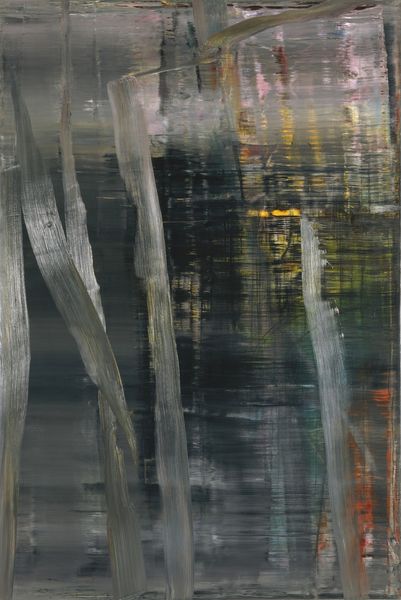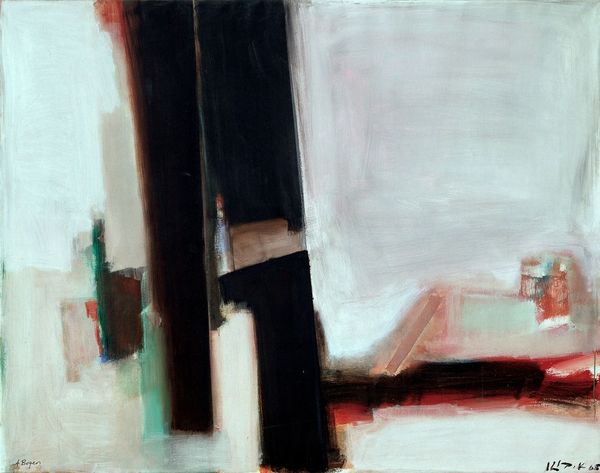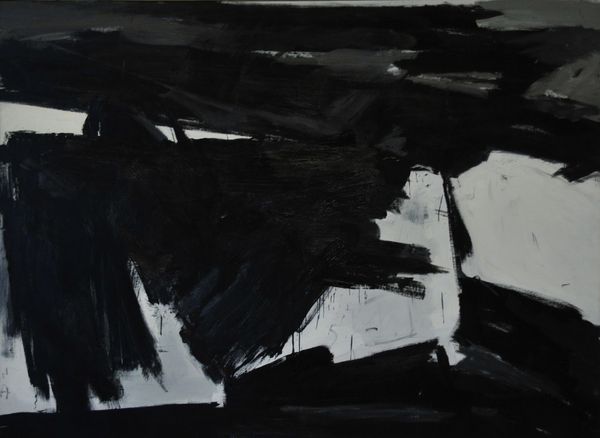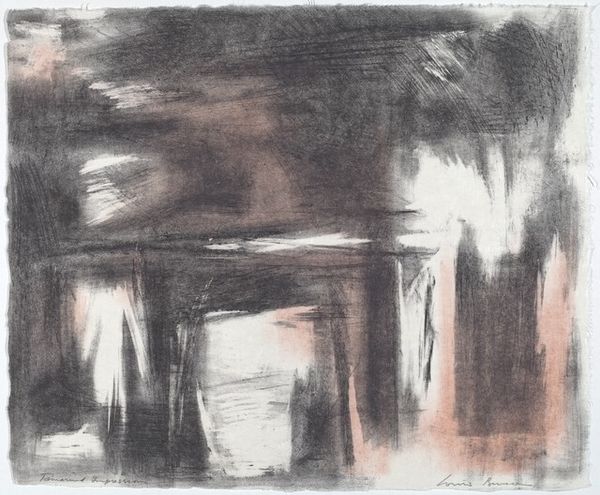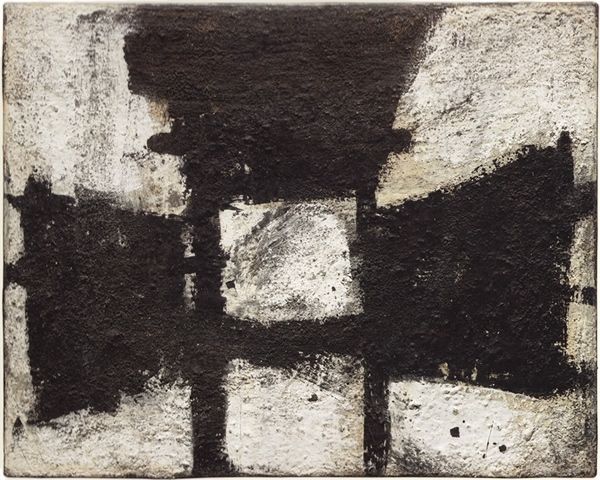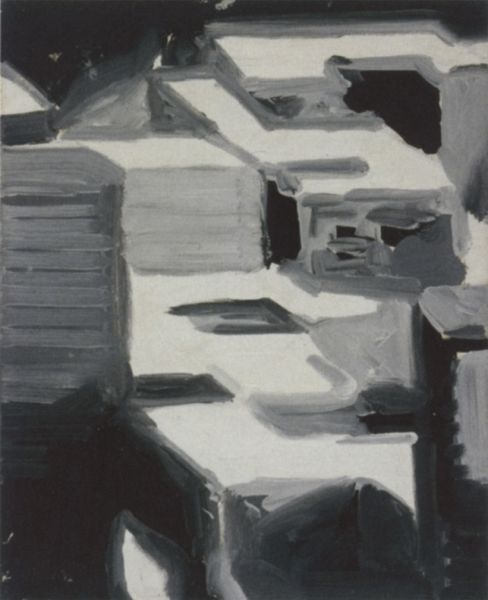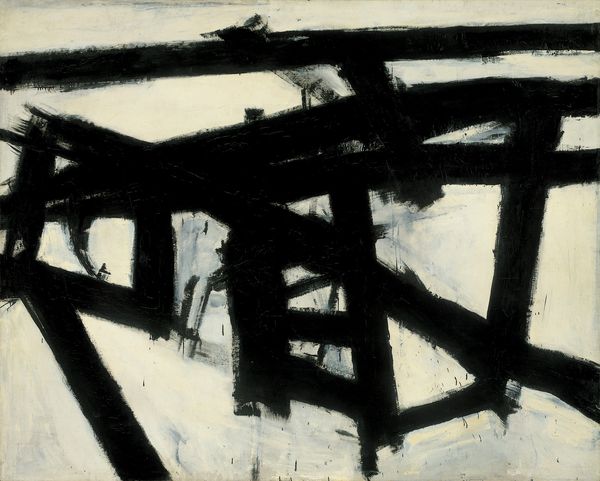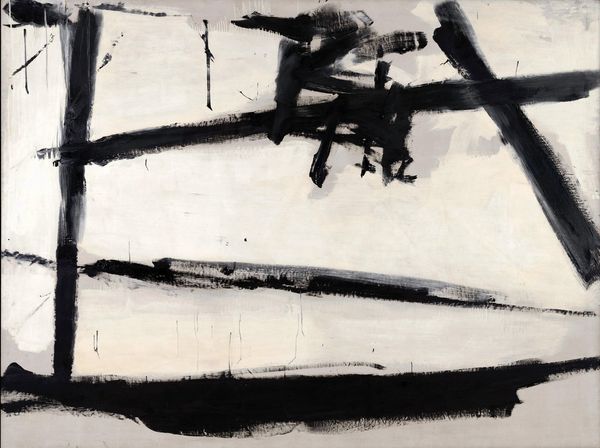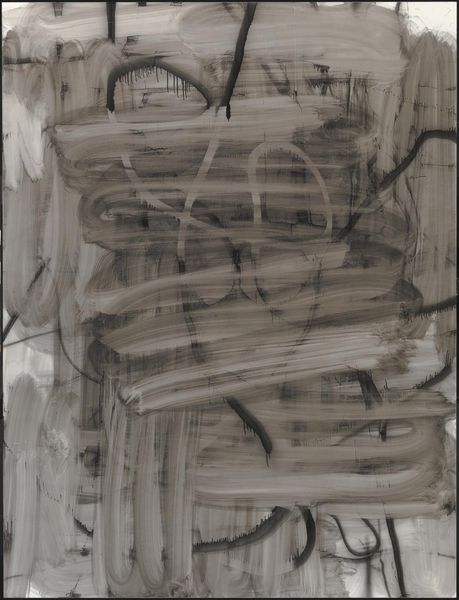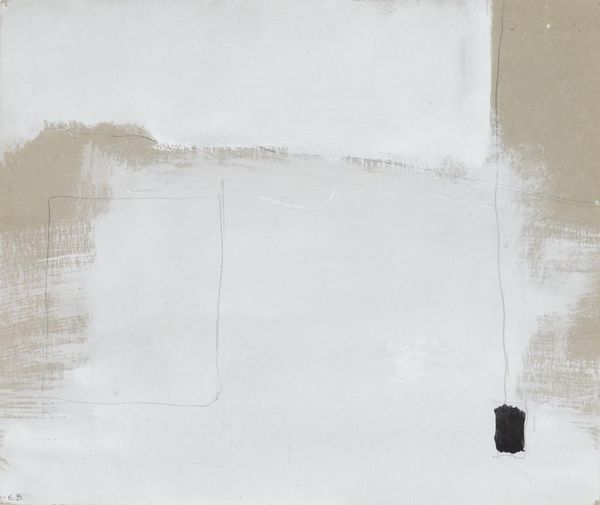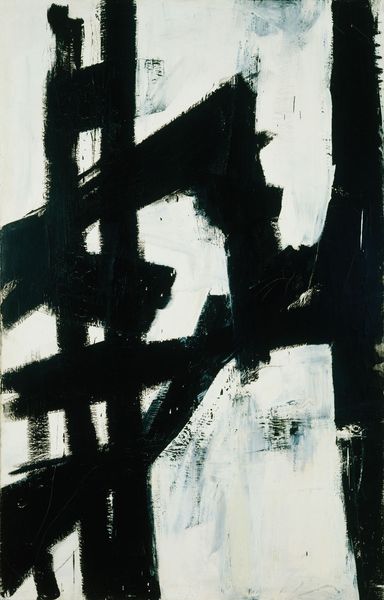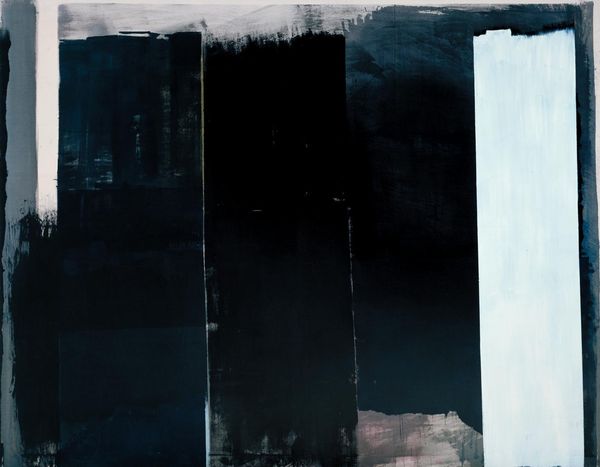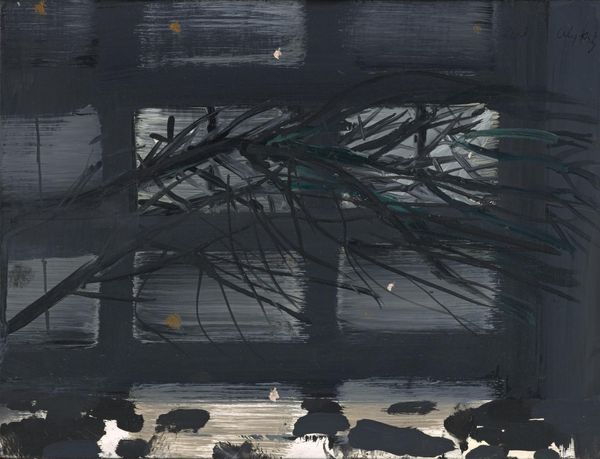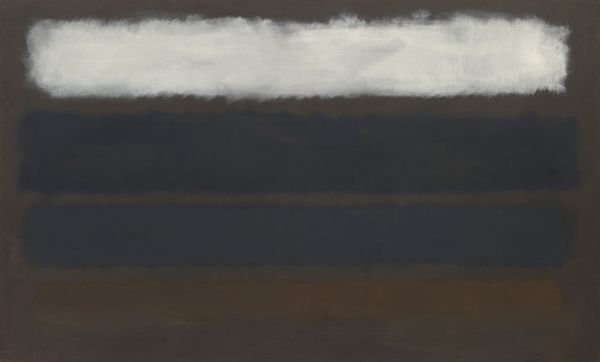
painting, acrylic-paint
#
abstract-expressionism
#
acrylic
#
painting
#
charcoal drawing
#
acrylic-paint
#
abstraction
#
monochrome
Copyright: Jan Groth,Fair Use
Editor: Here we have Jan Groth's "Maleri," painted in 1964 using acrylic paint. Its stark monochrome palette and rather blocky composition give it a solemn, almost industrial feel. What can you tell me about how this piece fits into the art world of its time? Curator: This work emerges from a period where Abstract Expressionism was wrestling with its own legacy. By 1964, the initial exuberance had given way to more austere explorations of form and material. How do you think its presentation in a gallery space affects how viewers interpret such an abstract piece? Editor: That’s a good question. I guess seeing it framed and in a gallery, instead of just, say, a workshop, automatically elevates it, encouraging us to find deeper meaning. Does knowing this was created in Norway have any particular bearing on its reception? Curator: Absolutely. Norway, while participating in broader artistic movements, often processed them through its own cultural lens. Consider the post-war reconstruction and social democratic values that emphasized equality and collective identity. Does the apparent lack of ornamentation or obvious narrative contribute to a sense of democratic accessibility, perhaps even humility? Editor: That's an interesting angle! It does seem quite unpretentious, like it’s resisting grand gestures. Do you think Groth was making a statement about the role of art in society with this piece? Curator: It’s certainly possible to view it that way. Many artists during this period grappled with art’s relationship to power and ideology. Perhaps by stripping down the visual language, Groth invites us to question what constitutes art and who it serves. What’s your take now? Editor: I see how it moves away from the heroic individualism often associated with Abstract Expressionism toward something more grounded, more... communal. It makes me rethink how art can participate in social discourse. Thanks for sharing that insight. Curator: And thank you. Considering these perspectives truly enriches our understanding of not just this artwork but its broader socio-political context.
Comments
No comments
Be the first to comment and join the conversation on the ultimate creative platform.
